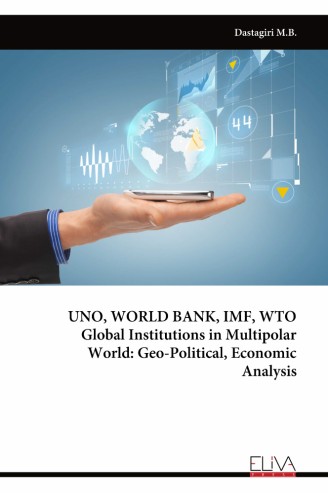
UNO, WORLD BANK, IMF, WTO Global Institutions in Multipolar World: Geo-Political, Economic Analysis
$ 42.5
Description
Global Multilateral Institutions are the authority to solve international, transnational problems. After WWII, the multilateral architecture quickly grew. In the recent years due to multilateral system tremendous development in the international economy. The study analyzed functions, success and failures, obstacles in multipolar world and suggested policies for future. This is a geopolitical–economic research policy analysis. UN established in 1945, to stop future wars and maintain peace & security, and to solve social, cultural, economic problems. In 1944, The World Bank, International Monetary Fund (IMF) established to reduce poverty and boost prosperity over the globe. The WTO is to promote cross-border commerce. The UNO succeeded in global peace and security, human rights, poverty, environmental problems, decolonization. The failures are terrorism, climate problem, inequality, Covid crisis. The World Bank succeeded in solving poverty reduction, fragile states development. The failures are inequality and sustainable economic development. The IMF succeeded in competitive currency devaluations and great depression. The WTO succeeded in trade globalization, technology transfer. The failures are Trade wars, dispute settlements. The UN has obstacles like super power paradox of China, France, USSR, UK, USA. On World Bank, The US and Western countries dominance in sanction of credit to low income countries. IMF has lacuna NGO’s and MNC’s not included in decision making in financing. The WTO does not operate as a system guidance and single supervision. The Geopolitical-economic policy analysis shows that United States dominance, return of old Russia and the growing aspiration of new China antiliberal powers, the multilateral system is rattled. The study concludes that World politics is essentially a straggle among interested countries for survival, security and power.



